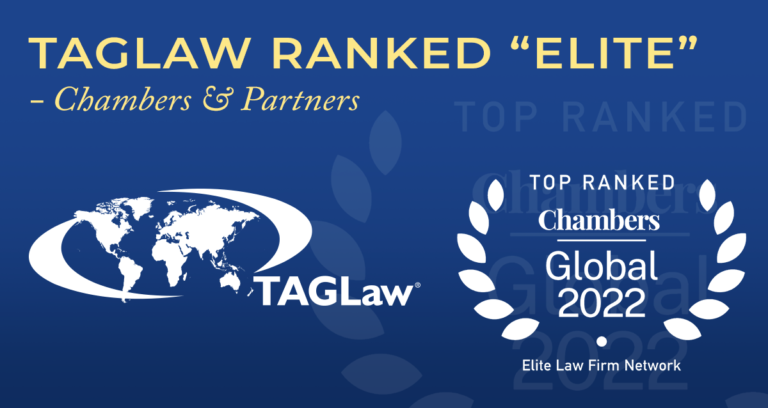The Privy Council recently handed down the monumental decision in the joined cases of Equity Trust (Jersey) Ltd v Halabi and Investec Trust (Guernsey) Ltd v Fort Trustees [2022] UKPC 36.
Background
Both appeals related to the rights of indemnity of successive trustees against the assets of trusts where the trust has become ‘insolvent’. As a trust is not a separate legal personality it cannot incur debts in its own name therefore, rendering it nonlogical for a trust to be insolvent. However, references are made to trusts being insolvent when trust assets are insufficient to meet in full the liabilities incurred by the trustees.
Jersey law was applicable in both cases with the Privy Council stating that such law was in all respects the same as England. On this basis we believe both cases shall present as highly persuasive and will undeniably impact the trust industry far and wide.
Equity Trust (Jersey) Ltd v Halabi
Following removal as sole trustee, in 2012 Equity Trust (Jersey) Ltd (“ETJL”) was sued for £53 million by liquidators of a company in the trust structure. Action was taken by the liquidators due to an alleged breach of fiduciary duties by two of its directors in relation to the trust. Upon proceedings being settled, ETJL attempted to recover £18.9 million under its indemnity in relation to the settlement and costs.
The Court held that ETJL was not entitled to their costs however, the decision was reversed by the Jersey Court of Appeal. The Court of Appeal stated that a former trustee’s right of indemnity and lien ranks ahead of a successor trustee’s right of indemnity and lien on a first time basis[1], therefore, ETJL’s costs of proving its claim were recoverable under such indemnity.
Investec Trust (Guernsey) Ltd v Fort Trustees
ITGL (original trustee) and Bayeux Trustees Ltd (co-trustee), assumed liabilities under a loan agreement with a bank totally to approximately £100 million with further loans due to two BVI companies. The BVI companies were moving into the position as co-trustees.
The liquidators of the two BVI companies pressed for repayment for such loans with ITGL and Bayeux Trustees Ltd issuing proceedings for confirmation by the Court as to whether they had incurred liabilities to the BVI companies and indemnity against assets of the trust.
Following this ITGL and Bayeux Trustees Ltd were replaced, with the new trustee being added to the proceedings and such debts assigned to the new trustee. The appeal focused on ITGL’s right to indemnity for costs and unpaid remuneration.
It was held that the claims of a former trustee and its trust creditors take priority over those of successor trustees[2] and that trustee claims have priority over unpaid creditors claiming by way of subrogation to the trustee’s right of indemnity[3]. This decision was upheld by the Guernsey Court of Appeal.
Principal issues
In its judgment the Privy Council raised and considered the below four issues:
- Does the right of indemnity confer on the trustee a proprietary interest in the trust assets[4]?
- Does the right of indemnity of a trustee survive the transfer of the trust assets to a successor trustee[5]?
- Does a former trustee’s claim take priority over the equivalent interests of successor trustees[6]?
- Does a trustee’s indemnity/lien extend to the costs of proving its claim against the trust if the trust is “insolvent”, in the sense that trustees’ claims to indemnity exceed the value of the trust fund[7]?
Issues 1, 2, and 4 were unanimously confirmed with the Court being split 4 to 3 in regard to issue 3. Issue 3 gave rise to three separate judgments.
The majority held that both current and former trustees’ claims rank pari passu. On the other hand, the minority held that trustees’ claims rank according to the usual ‘first time’ rule applicable to equitable proprietary interests. Therefore, relating to the chronological order in which a trustee is appointed.
Lord Briggs, who was initially in favour of the ‘first time’ rule, held that “the impressive arguments, coupled with lengthy ensuing debate and reflection, have caused me to change my mind”[8]. It was then held that trustees’ claims in terms of their lien or interest in the trust assets should rank pari passu.
The milestone judgment handed down by the Privy Council has provided much needed direction in an area of law lacking authority. Consideration must be given as to how such decision shall impact against current and present trustees and legal professionals in this developing area of law. We believe there shall be plenty more opportunities to litigate these difficult and interesting issues.
Our Trust and Private Client Team have extensive knowledge on all matters associated with trusts. If you require any further information or would like to make an appointment to meet with one of the team, please contact DQ Advocates on 01624 626999.
Download a PDF version of this article here
Disclaimer
The information and/or opinions contained in this article is necessarily brief and general in nature and does not constitute legal or taxation advice. Appropriate legal or other professional advice should be sought for any specific matter. Any reliance on such information and/or opinions is therefore solely at the user’s own risk and DQ Advocates Limited (and its associates and subsidiaries) is not responsible for, and does not accept any responsibility or liability in connection with any action taken or reliance placed upon such content.
[1] Equity Trust (Jersey) Ltd v Halabi and Investec Trust (Guernsey) Ltd v Fort Trustees [2022] UKPC 36, para 25(ii)
[2] Equity Trust (Jersey) Ltd v Halabi and Investec Trust (Guernsey) Ltd v Fort Trustees [2022] UKPC 36, para 42(i)
[3] Equity Trust (Jersey) Ltd v Halabi and Investec Trust (Guernsey) Ltd v Fort Trustees [2022] UKPC 36, para 42(ii)
[4] Equity Trust (Jersey) Ltd v Halabi and Investec Trust (Guernsey) Ltd v Fort Trustees [2022] UKPC 36, para 70
[5] Equity Trust (Jersey) Ltd v Halabi and Investec Trust (Guernsey) Ltd v Fort Trustees [2022] UKPC 36, para 106
[6] Equity Trust (Jersey) Ltd v Halabi and Investec Trust (Guernsey) Ltd v Fort Trustees [2022] UKPC 36, para 167
[7] Equity Trust (Jersey) Ltd v Halabi and Investec Trust (Guernsey) Ltd v Fort Trustees [2022] UKPC 36, para 235
[8] Equity Trust (Jersey) Ltd v Halabi and Investec Trust (Guernsey) Ltd v Fort Trustees [2022] UKPC 36, para 239







